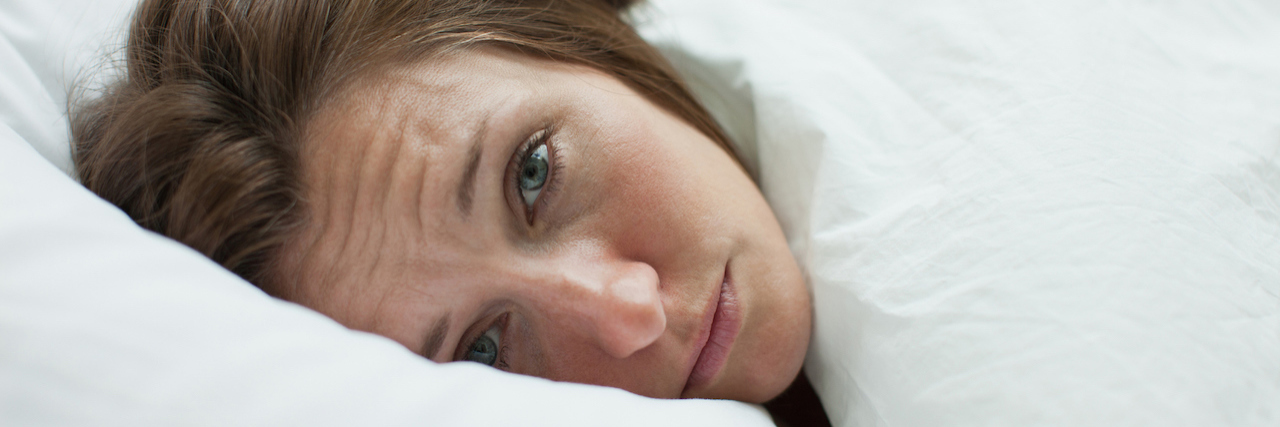I Think I Have COVID-19, but My Doctor Said She Couldn't Test Me
I think I have COVID-19.
I have not tested positive for COVID-19 because I have not been tested, but I think I have it all the same.
On March 24, I woke up with a sore throat, achy lungs and slight difficulty breathing. I had had an asthma attack the day before and, as these symptoms can appear following asthma attacks, I did not think much of it. However, after I got to work (helping prepare a state park for summer visitors) and started being more physically active, my breathing got worse and I soon was having major difficulties breathing despite having taken my rescue inhaler. My boss and co-workers sent me home after making sure I felt OK to drive.
On the half-hour drive home, I started really thinking about and paying attention to my symptoms. While the main issue was trouble breathing, it felt different than any asthma attack I had ever had and my inhaler had not done anything. I, as most people have, had heard a lot about the different symptoms that are and are not associated with COVID-19 — a new-to humans virus that causes respiratory infection and can lead to serious or fatal health complications. After determining that my breathing trouble did not feel like asthma, I started going through those symptoms in my head and “checking off” if I had them or not. I really looked for symptoms that could indicate it was just a cold rather than COVID-19, but did not have any.
Once I got home I got out my rarely used nebulizer and again attempted to improve my ability to breathe. The nebulizer treatment worked and I was able to breathe more easily. After taking care of my breathing, I called the local clinic to ask if I should go in to get tested for COVID-19. After confirming that I did not need to go into the emergency room, they directed me to call a regional public health district (PPHD) that was handling decisions on possible COVID-19 cases and whether or not they needed to be seen by a doctor. After calling PPHD, they decided to have me self-quarantine for two weeks and call them if my symptoms worsened.
I spent a little over a week being about 95% sure I had COVID-19. My symptoms, and lack of other symptoms, matched. There was some variance in how I was feeling throughout that week but overall as long as I wasn’t very active, I was fairly fine.
On April 2, I woke up to increased pain in my chest and difficulty breathing. I looked at the latest information for COVID-19 on WebMD and the CDC website and decided that I needed to call PPHD again. This time I was still having trouble breathing as I talked to the person on the phone. Upon hearing my symptoms, but lack of travel to an area with known cases of COVID-19, they requested a phone number I could be reached at and asked me to wait while they talked to a person who was higher up. They said they would call me back with more information. Shortly after, I received a call from a different person at PPHD who decided I definitely did need to see a doctor, but they wanted to check to see whether or not I should go to the clinic. So once again, I waited for a return phone call. This time it was a doctor from the clinic that called, and after a short conversation she instructed me to go into the clinic, but call when I got there so that someone could meet me outside with a mask and take me directly back to an examination room.
The doctor I saw told me that she wanted to test me for COVID-19, but couldn’t. Because I have not traveled and there are no confirmed cases in my area, my doctor could not test me for COVID-19.
I cannot help but wonder how COVID-19 can be confirmed in an area if doctors cannot test patients they believe have COVID-19. I personally have not traveled outside the area, but know (and told my doctor) that I have been around people who have traveled. However, even with this knowledge and my symptoms leading my doctor to believe I likely have COVID-19, she could not test me. She told me, “I wish I could test you, but I can’t.”
The numbers we are being told about COVID-19 cannot and will not be even close to accurate until doctors can test patients they feel need to be tested. Lack of people who have tested positive does not in any way indicate that COVID-19 is not in your community. Please be aware and modify your activities as if COVID-19 is in your town because it may be, but your local doctors might be unable to test patients who need to be tested.
Concerned about coronavirus? Stay safe using the tips from these articles:
Getty image via Martin Barraud

